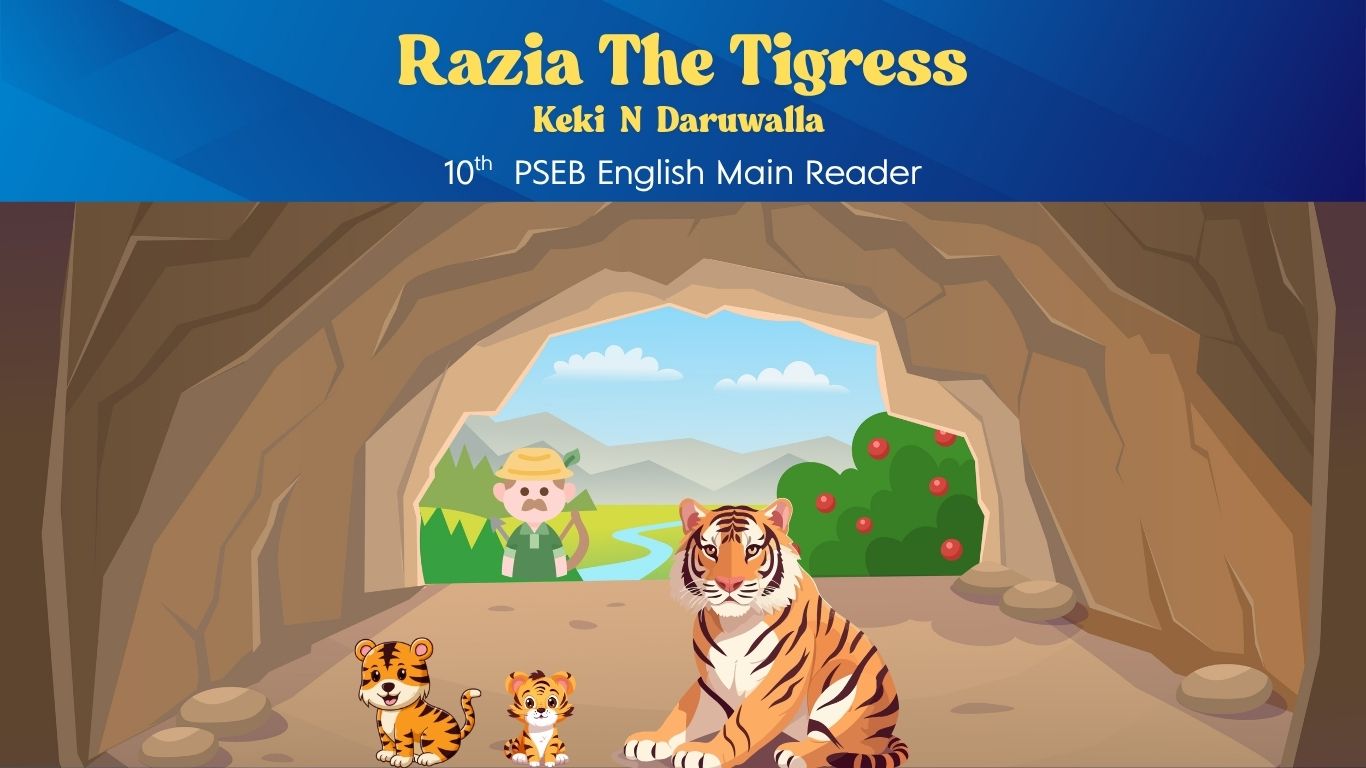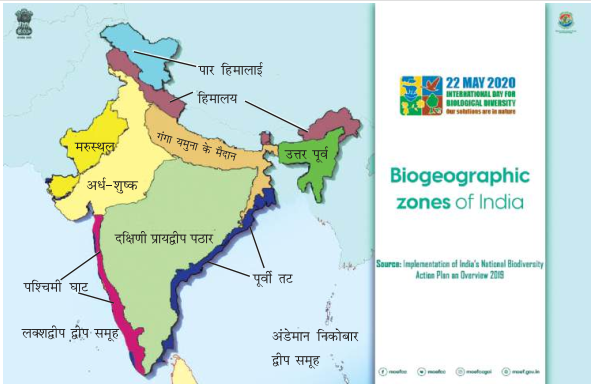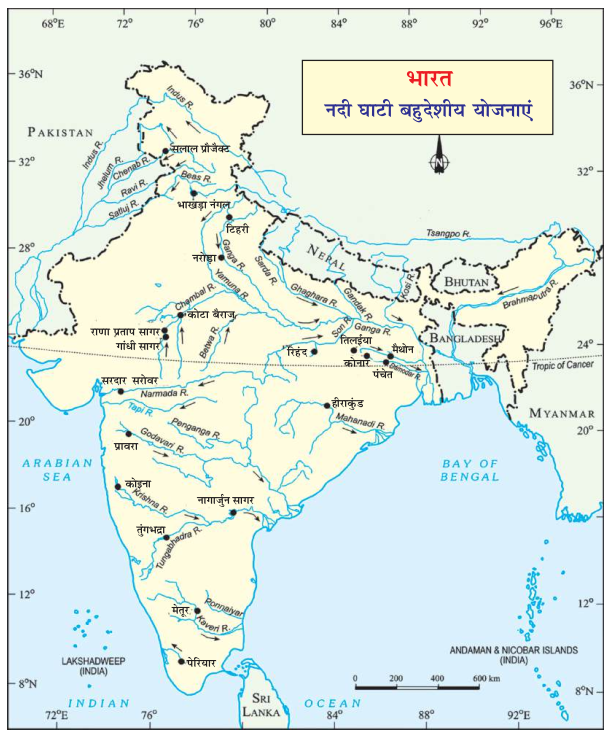Razia The Tigress – Summary
Short Summary of “Razia, the Tigress”
The poem “Razia, the Tigress” by Keki N Daruwalla portrays the desolate life of a tigress, Razia, who is left alone with her two unnamed cubs after her mate, Sheru, has disappeared, likely killed by poachers. Sheru was an expert hunter, incredibly skilled in using the wind and stalking his prey. Now, with Sheru gone, Razia is consumed by grief and fear. She worries about leaving her cubs vulnerable to hyenas if she goes hunting and lives in constant dread of the return of human poachers with their guns. The poem is a poignant commentary on the plight of wildlife, the devastating impact of human encroachment and poaching on natural habitats, and the fear and struggle for survival faced by these magnificent creatures.
Central Idea of the Poem – Razia The Tigress
The central idea of the poem “Razia, the Tigress” is the devastating impact of human encroachment and poaching on wildlife, leading to loss, fear, and a desperate struggle for survival for the remaining animals.
The poem uses the personal tragedy of Razia—losing her mate Sheru and fearing for her cubs—to illustrate the broader crisis faced by endangered species. It highlights how human actions disrupt the natural order, instill constant fear in wild creatures, and push them towards a lonely and precarious existence, constantly overshadowed by the threat of human violence.
Hindi Translation of the Poem (Stanza-wise)
Stanza 1:
The tigress Razia lives alone.
Her two cubs haven’t yet been named.
Sheru barely played with them
And now he’s gone, O what a shame !
Hindi Translation:
बाघिन रज़िया अकेली रहती है।
उसके दो शावकों के नाम अभी तक नहीं रखे गए हैं।
शेरू ने उनके साथ मुश्किल से ही खेला था
और अब वह चला गया है, ओह कितनी शर्म की बात है!
Stanza 2:
Sheru was an expert on winds,
Knew how they traversed dale and hill,
And where they put up for the night
When no leaf stirred and all was still.
Hindi Translation:
शेरू हवाओं का विशेषज्ञ था,
जानता था कि वे घाटी और पहाड़ी कैसे पार करती हैं,
और रात में वे कहाँ ठहरती थीं
जब कोई पत्ता नहीं हिलता था और सब शांत होता था।
Stanza 3:
He knew his winds, their traffic lanes !
He knew the deer would smell him out,
If they were down-wind.
So he would belly-crawl and crouch
Hindi Translation:
वह अपनी हवाओं को, उनके आने-जाने के रास्तों को जानता था!
वह जानता था कि हिरण उसे सूंघ लेंगे,
यदि वे हवा की दिशा में नीचे की ओर होंगे।
इसलिए वह पेट के बल रेंगता और दुबक जाता
Stanza 4:
And take a long circular route,
Hiding behind bush and shrub
Once he knew his scent won’t carry,
In a flash he would erupt.
Hindi Translation:
और एक लंबा घुमावदार रास्ता अपनाता,
झाड़ी और छोटे पेड़ के पीछे छिपता हुआ
एक बार जब उसे पता चल जाता कि उसकी गंध नहीं जाएगी,
एक पल में वह टूट पड़ता।
Stanza 5:
(Deer hadn’t sniffed that thick and musty
Smell of his which people dubbed
As tiger-scent.) He got the stag,
His claw fell like a giant club
Hindi Translation:
(हिरण ने उसकी उस घनी और बासी
गंध को नहीं सूंघा था जिसे लोग
बाघ की गंध कहते थे।) उसने बारहसिंगे को पकड़ लिया,
उसका पंजा एक विशाल गदा की तरह गिरा
Stanza 6:
On neck and antler-both were crushed
Now Sheru’s gone. Not any more
Do people fear his dreaded spoor,
Pug-marked on the forest floor.
Hindi Translation:
गर्दन और सींग पर – दोनों कुचल दिए गए
अब शेरू चला गया है। अब और नहीं
लोग उसके भयानक पदचिह्नों से डरते हैं,
जो जंगल के फर्श पर अंकित होते थे।
Stanza 7:
Grief and fear start competing
In Razia’s heart. With Sheru gone,
Will the hyenas hound her cubs?
Can she leave the little ones alone,
Hindi Translation:
रज़िया के दिल में दुख और डर मुकाबला करने लगते हैं।
शेरू के चले जाने के बाद,
क्या लकड़बग्घे उसके शावकों का शिकार करेंगे?
क्या वह छोटों को अकेला छोड़ सकती है,
Stanza 8:
When she goes hunting flesh and bone?
The tigress Razia lives in fear.
A greater dread, when will again
The poachers with their guns appear?
Hindi Translation:
जब वह मांस और हड्डी का शिकार करने जाती है?
बाघिन रज़िया डर में जीती है।
एक बड़ा डर, कब फिर से
शिकारी अपनी बंदूकों के साथ दिखाई देंगे?
Answers to Questions
-
Rewrite the poem ‘Razia, the Tigress’ in prose, with one sentence for each stanza.
-
Stanza 1: Razia the tigress is now alone with her two young, unnamed cubs because her mate Sheru, who hardly interacted with them, is gone, which is a sorrowful situation.
-
Stanza 2: Sheru was highly skilled at understanding wind patterns, knowing their paths through valleys and hills, and where they would settle when everything was calm at night.
-
Stanza 3: He expertly utilized his knowledge of wind currents and how deer would detect his scent if they were downwind, so he would move stealthily by crawling and crouching.
-
Stanza 4: Sheru would patiently take a long, indirect path, concealing himself behind foliage, and then suddenly attack once he was sure his scent wouldn’t betray him.
-
Stanza 5: Before the deer could detect his distinct “tiger-scent,” Sheru would capture his prey, like a stag, with a powerful strike of his claw.
-
Stanza 6: After crushing the stag’s neck and antlers, Sheru is now gone, and people no longer live in fear of his well-known tracks in the forest.
-
Stanza 7: Razia’s heart is torn between grief for Sheru and fear for her cubs, wondering if hyenas will attack them or if she can safely leave them unattended.
-
Stanza 8: As Razia contemplates hunting, she lives in constant fear, especially dreading the moment poachers might reappear with their guns.
-
-
Write a summary of the poem ‘Razia, the Tigress’.
(Please see the short summary provided above the translations.) -
What is the theme of the poem ‘Razia, the Tigress’?
The main themes of the poem are:-
The plight of wildlife and endangerment: It highlights the vulnerability of tigers and other wild animals due to human activities.
-
Human-wildlife conflict: The poem shows how human actions (poaching, encroachment) directly threaten the lives and existence of animals like Razia and Sheru.
-
Loss and Grief: Razia experiences profound grief over the loss of her mate, Sheru.
-
Fear and Survival: Razia lives in constant fear for her own life and, more importantly, for the survival of her cubs in a hostile environment.
-
The impact of poaching: The poem directly addresses the threat posed by poachers and their devastating effect on tiger populations.
-
Depletion of natural resources and habitat loss: The introductory note to the poem also points towards this broader context, which underlies the dangers faced by wildlife.
-
-
Why does Razia, the Tigress live alone?
Razia lives alone because her mate, Sheru, “is gone.” The context implies he has been killed, likely by poachers. -
What was Sheru’s expertise?
Sheru’s expertise was in hunting. He was an expert on winds, knowing how they moved and where they settled. He knew how deer would detect his scent and would use this knowledge to approach them stealthily by belly-crawling, crouching, and taking long, circular routes, hiding behind bushes until he could erupt in a sudden attack. -
What happened to Sheru?
The poem states, “Now Sheru’s gone.” While not explicitly detailed, the context of poachers and the fact that “Not any more / Do people fear his dreaded spoor” strongly implies that Sheru was killed, most likely by human poachers. -
What are Razia’s fears?
Razia has two primary fears:-
She fears for her cubs’ safety from other predators like hyenas if she leaves them alone to go hunting (“Will the hyenas hound her cubs? / Can she leave the little ones alone”).
-
She lives in greater dread of the poachers returning with their guns (“A greater dread, when will again / The poachers with their guns appear?”).
-
-
What kind of a creature was Sheru –
The correct answer is (b) shrewd hunter. The poem extensively details his intelligence, patience, and skill in stalking and capturing prey. -
Rhyming words are those words which end in similar sounds. Some rhyming words are ‘branch – avalanche’, ‘prayer-air’, ‘hound – found’. Write two pairs of rhyming words each from the last two stanzas of the poem.
From the last two stanzas:-
Pair 1 (from the second to last stanza): gone / alone
-
Pair 2 (from the last stanza): fear / appear
-
(Another pair from the last stanza: again / when)
-



